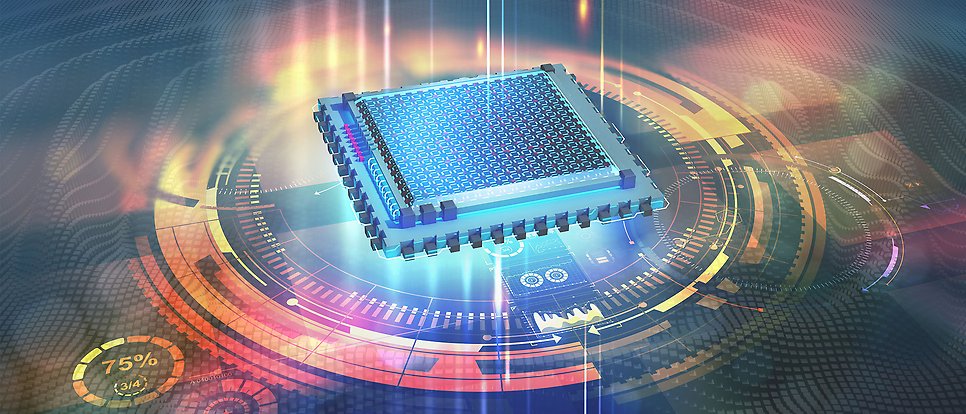Master's Programme in Quantum Technology
120 credits

The Quantum Technology Master's at Uppsala University prepares you for the emerging quantum revolution. Gain expertise in optical, electronic, and magnetic quantum phenomena, applying them to advancing technologies. Benefit from hands-on projects led by frontline experts in quantum innovation in an international environment with state-of-the-art facilities. This program equips you for success in academia and industry.
Autumn 2023 Autumn 2023, Uppsala, 100%, On-campus, English
- Location
- Uppsala
- Pace of study
- 100%
- Teaching form
- On-campus
- Instructional time
- Daytime
- Start date
- 28 August 2023
- Language of instruction
- English
- Entry requirements
-
Academic requirements
A Bachelor's degree, equivalent to a Swedish Kandidatexamen, from an internationally recognised university.
Also required is:
- 75 credits in physics and engineering, of which at least 50 credits in physics including 10 credits in quantum physics;
- 40 credits in mathematics;
- 10 credits in scientific computing and computer programming, of which at least 5 credits scientific computing;
Language requirements
Proficiency in English equivalent to the Swedish upper secondary course English 6. This requirement can be met either by achieving the required score on an internationally recognised test, or by previous upper secondary or university studies in some countries. Detailed instructions on how to provide evidence of your English proficiency are available at universityadmissions.se.
- Selection
-
Students are selected based on an overall appraisal of previous university studies and a statement of purpose.
- Fees
-
If you are not a citizen of a European Union (EU) or European Economic Area (EEA) country, or Switzerland, you are required to pay application and tuition fees.
- First tuition fee instalment: SEK 72,500
- Total tuition fee: SEK 290,000
- Application deadline
- 16 January 2023
- Application code
- UU-M1370
- Additional information
-
In addition to the general supporting documents, you also need to submit a programme-specific statement of purpose (1 page).
Check the application guide for information on how to apply and what other supporting documents you need to submit.
Autumn 2024 Autumn 2024, Uppsala, 100%, On-campus, English
- Location
- Uppsala
- Pace of study
- 100%
- Teaching form
- On-campus
- Instructional time
- Daytime
- Start date
- 2 September 2024
- Language of instruction
- English
- Entry requirements
-
Academic requirements
A Bachelor's degree, equivalent to a Swedish Kandidatexamen, from an internationally recognised university.
Also required is:
- 75 credits in physics and engineering, of which at least 50 credits in physics including 10 credits in quantum physics;
- 40 credits in mathematics;
- 10 credits in scientific computing and/or computer programming;
Language requirements
Proficiency in English equivalent to the Swedish upper secondary course English 6. This requirement can be met either by achieving the required score on an internationally recognised test, or by previous upper secondary or university studies in some countries. Detailed instructions on how to provide evidence of your English proficiency are available at universityadmissions.se.
- Selection
-
Students are selected based on an overall appraisal of previous university studies and a statement of purpose.
- Fees
-
If you are not a citizen of a European Union (EU) or European Economic Area (EEA) country, or Switzerland, you are required to pay application and tuition fees.
- First tuition fee instalment: SEK 72,500
- Total tuition fee: SEK 290,000
- Application deadline
- 15 January 2024
- Application code
- UU-M1370
- Additional information
-
In addition to the general supporting documents, you also need to submit a programme-specific statement of purpose (1 page).
Check the application guide for information on how to apply and what other supporting documents you need to submit.
About the programme
Important parts of modern technology apply physics on a scale where quantum effects are central. The Master's Programme in Quantum Technology will give you knowledge about the quantum mechanical laws that explain these effects in light and matter, and an insight into the technological leaps now taking place.
During the programme, you can expect to:
- gain theoretical knowledge and practical skills in quantum technology,
- explore advanced research laboratories in the field,
- get personal contacts with frontline researchers in the field, helping you prepare for your future career,
- get the opportunity to develop contacts in Swedish and European industry.
This programme will also allow you to look ahead towards how one can control individual atoms, electrons, photons, and their applications. This development is often called "the second quantum revolution". Interests from industry range from the implementation of completely secure encryption to exponentially improving performance in high-intensity calculations in telecommunications, logistics, or modelling of chemical processes for medicine development. In fact, the 2022 Nobel Prize in Physics was awarded for work that cleared the way for quantum technology.
Uppsala University is at the forefront of many of these ongoing developments. As a student you will be exposed to state-of-the-art laboratories for fabrication and measurements of quantum phenomena, the know-how of nanodevices and low-dimensional materials, computing, and modelling facilities, all in an international research environment.
The subject is interdisciplinary in the borderland between physics and technology. This will provide you with the flexibility to work at different companies, as well as to join the most advanced research groups in top-ranked universities and research institutes.
Student profile
You have completed your Bachelor's studies with a good foundation in physics, which could also contain engineering or materials. You have good English skills, an analytical mind, and can express your thoughts in both writing and speaking. As a student, you are motivated and willing to take the responsibility needed to complete your studies. You are curious and enjoy problem-solving and interacting with people from all over the world.
Degree
The programme leads to the degree of Master of Science (120 credits) with Quantum Technology as the main field of study.
Content
Quantum technology is by nature an interdisciplinary subject with physics and technology. In this programme, you can choose different directions and mix future opportunities with technology that is already developed and used today.
In the first semester, you will gain a broad knowledge of quantum physics and technology. These initial courses ensure that all students share a common foundation of knowledge and allow you to understand the different choices of courses available within the Master's programme.
The second and third semesters contain the possibility to select a range of different courses. This includes more fundamental quantum physics, courses towards applied quantum technology, and quantum materials, as well as courses that specifically target the most novel implementation of quantum technology.
The programme ends with a 30-45 credit project where a minimum of 30 credits is devoted to the degree project.
Courses within the programme
Learning experience
The courses alternate theory and practice, and examination forms vary between different courses. The teaching takes place in the form of lectures, laboratory work, lessons, seminars, interdisciplinary projects and student-active teaching methods.
The teachers in the programme are active researchers in the field, which guarantees timeliness and depth of your education. You will participate in study visits and get opportunities to create a network of student colleagues, people from the industry, and people from leading research groups. You will also meet guest lecturers with experience in applied technology development and industry contacts beyond the university.
We put great importance on training you in a scientific way of working, where you can solve problems, think critically and analytically, and independently plan and design research projects. In this process, analysis and interpretation of results are an important part.
You will receive systematic communication training in both oral and written presentations as an integral part of the education. This is in high demand in the labour market, both in Sweden and internationally.
The programme is taught in English.
Career
The opportunities for different choices through the programme give you access to a broad labour market in an area that requires in-depth technological and theoretical knowledge. You can work at businesses that develop information technology, means to improve energy supply systems or target other environmental challenges. You can choose a carrer path both at established larger companies, research-intensive companies or start-ups.
In electronics, magnetism, and optoelectronics there is a constant development of semiconductor technology, measurement technology, photo and video technology, LED and OLED, and photovoltaics. Many new areas which process photons and electrons are located in the borderland between optics, solid-state physics, and electronics. The programme will provide you with the set of skills needed to be a part of this development, with job opportunities all over the world.
In the field of quantum computer development, intensive efforts already exist at several large companies such as Microsoft, Google, INTEL, and IBM, as well as at various research centres in Europe.
You can choose to pursue PhD studies after the programme, either at Uppsala University or at other Swedish or foreign universities. Upon completion of a PhD degree, you may choose to continue to research inside academia, but you will also be an attractive candidate for many positions in the labour market.
Career support
During your time as a student, UU Careers offers support and guidance. You have the opportunity to take part in a variety of activities and events that will prepare you for your future career.
Is this programme right for you?
Read interviews about the programme.

What people say about the programme
Watch our programme video.

Register your interest
Keep updated about the application process.

Contact
- For questions about the programme, please contact the programme coordinator:
- QuantTechCoordinator@physics.uu.se
- For admissions-related or general information, please contact our applicant support team:
- masterprogrammes@uu.se
Students
As a student you will find information about your studies in the student gateway.
